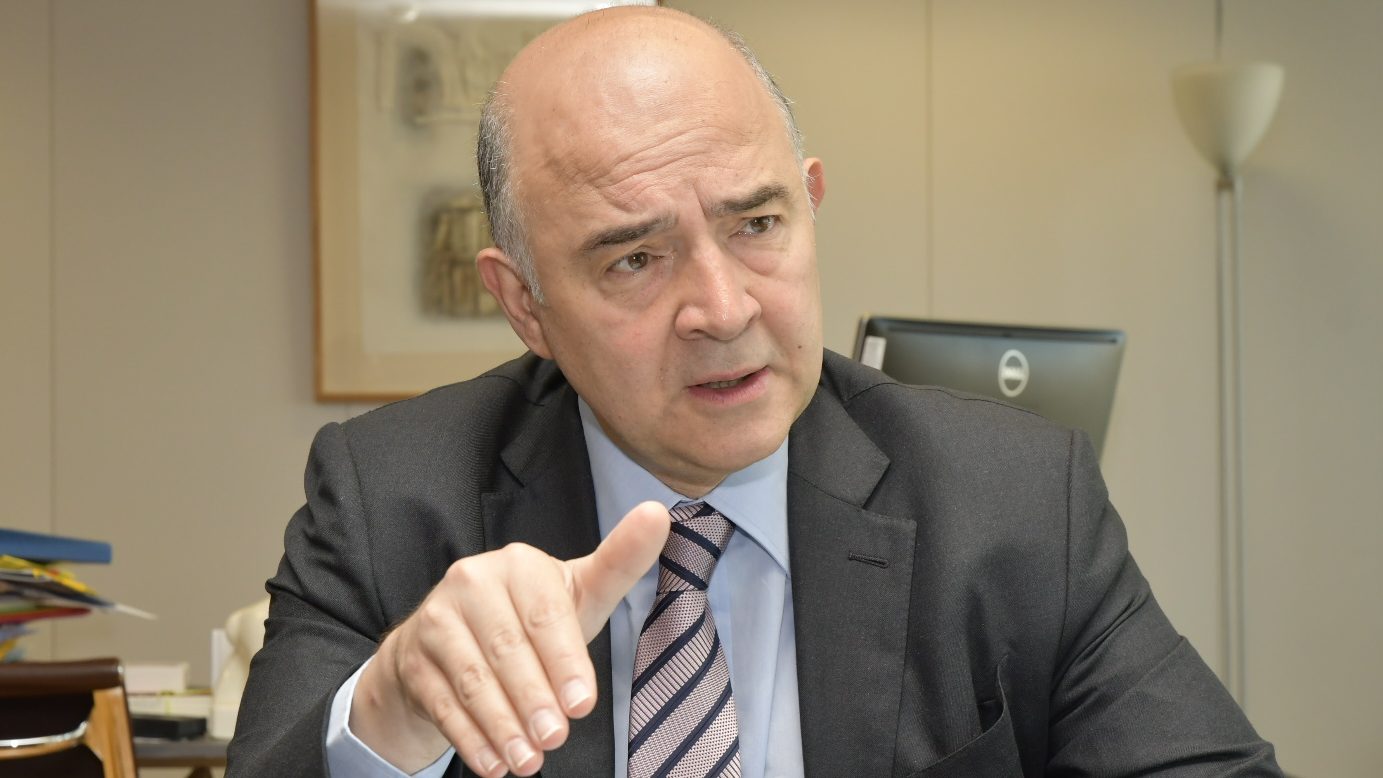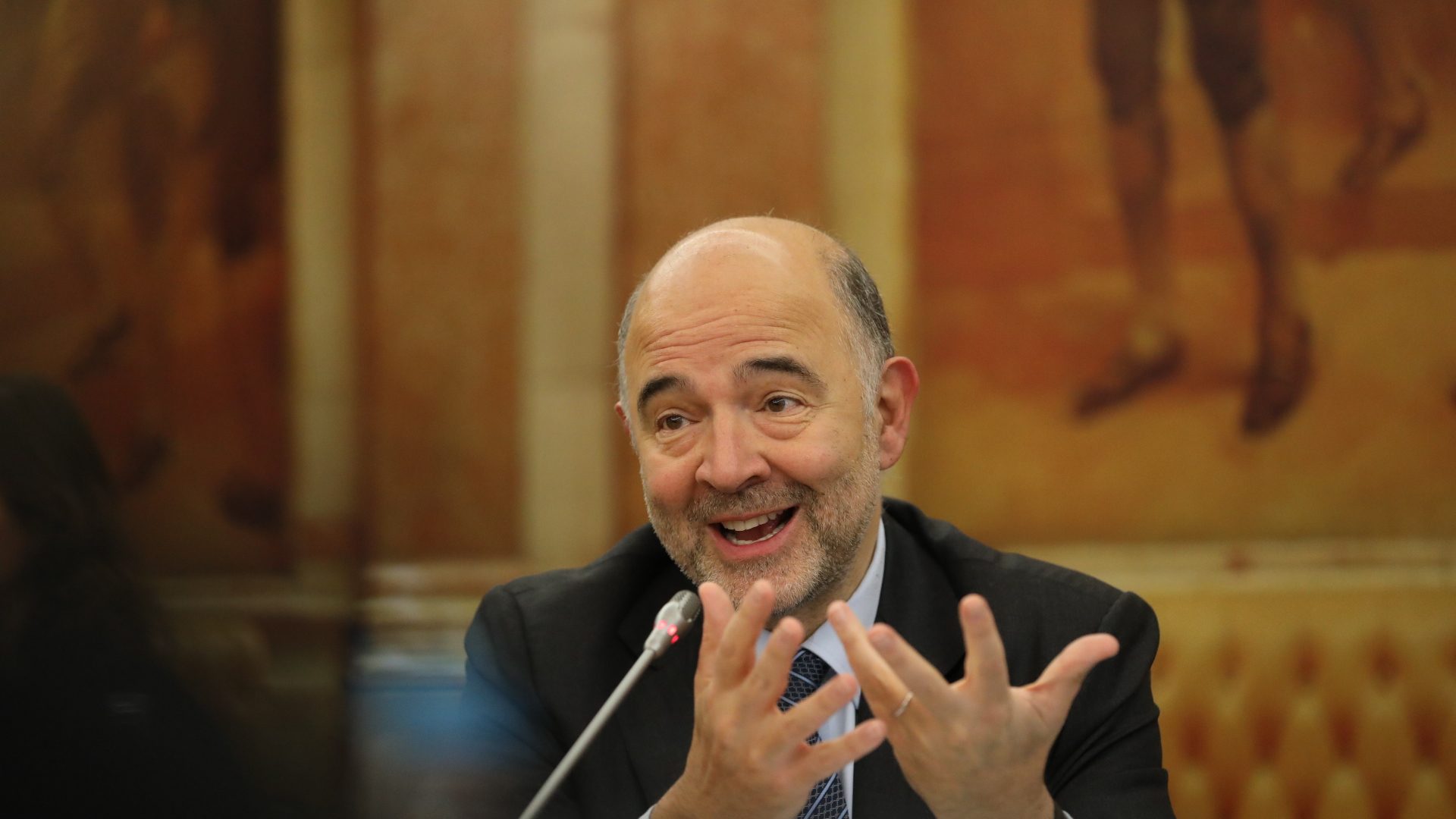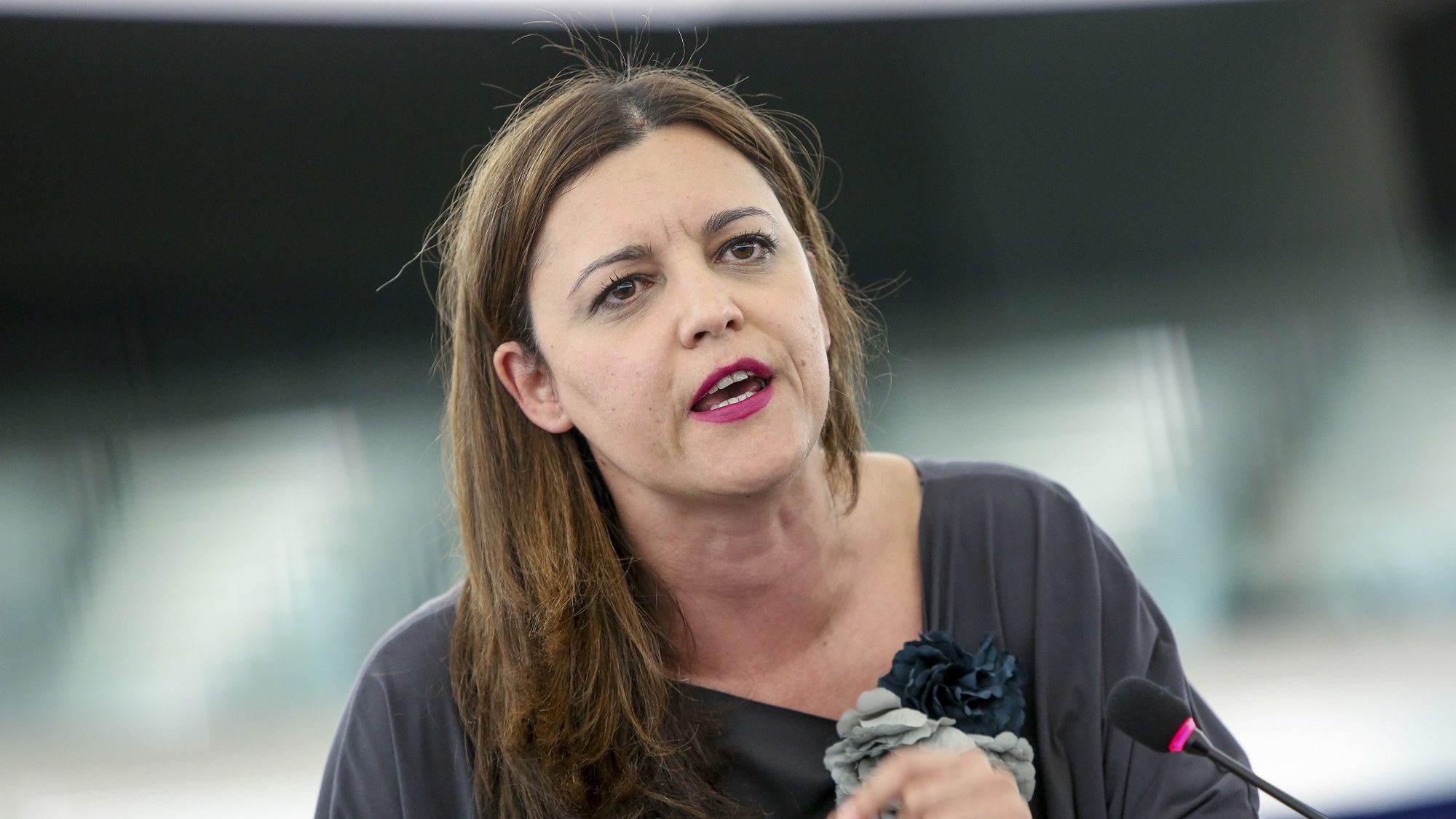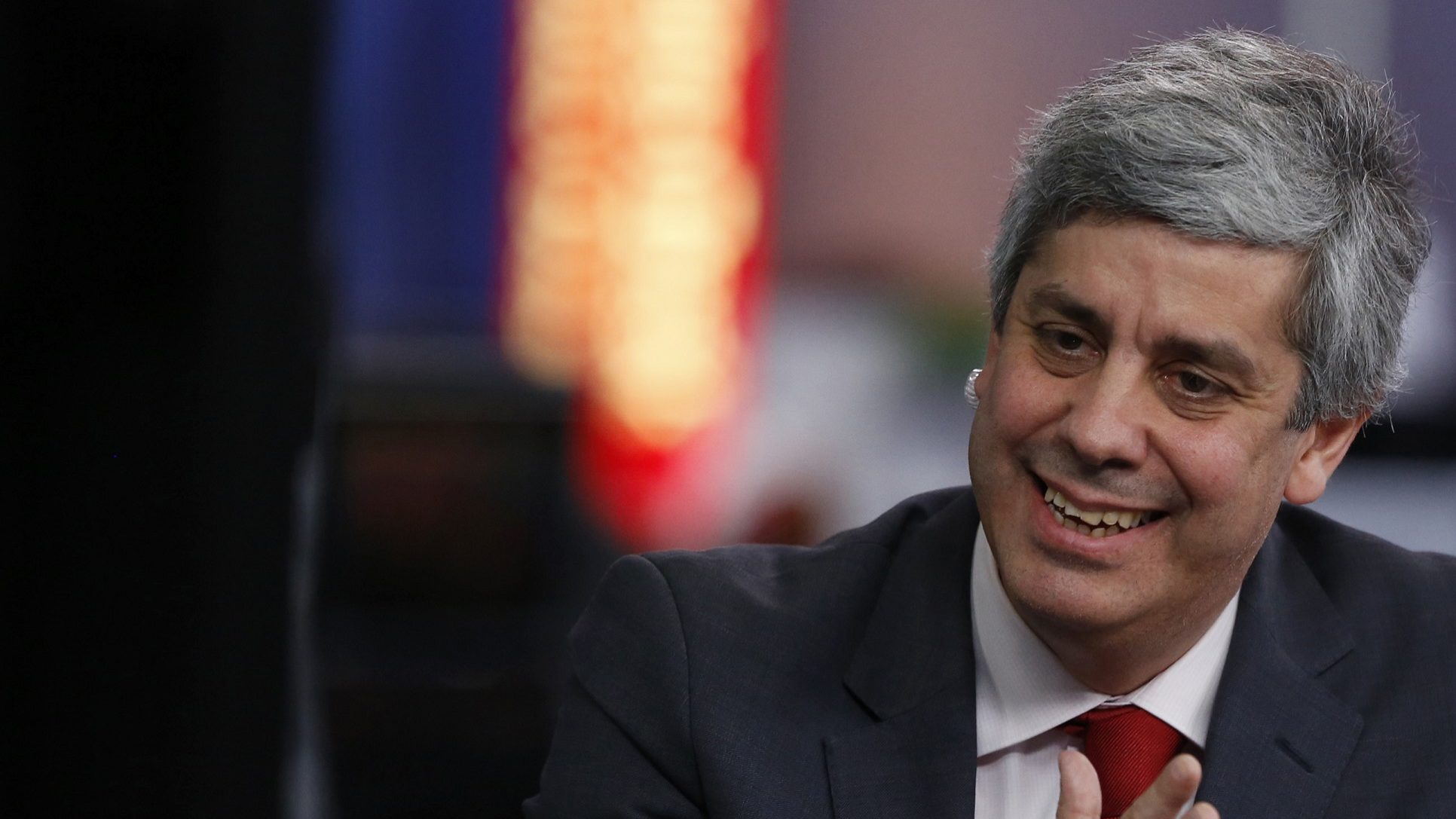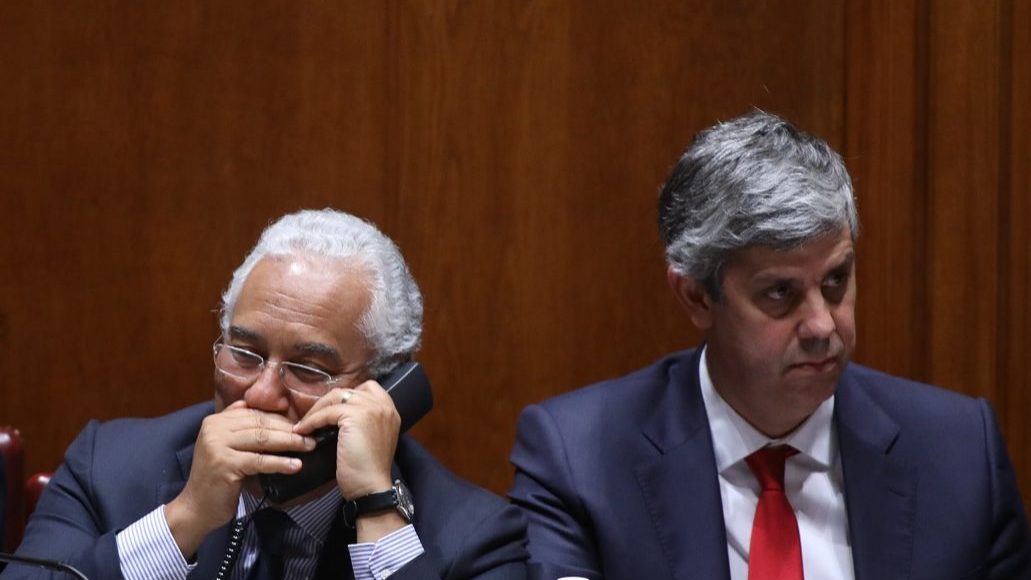Mário Centeno is now the new President of the Eurogroup. He received the bell from Dijsselbloem
Mário Centeno has ringed Eurogroup's bell. Starting this Friday, the Portuguese Finance minister will begin the leadership of the group of Finance ministers managing the euro.

Mário Centeno, the Portuguese Finance minister, has received this Friday, in Paris, the bell that symbolizes his position as Eurogroup’s President. The mandate of the Dutch Jeroen Dijsselbloem ended this Friday and for the next two and a half years, Centeno will be in charge of generating consensus and representing the Finance ministers’ single currency group.
In images broadcasted by televisions, the Portuguese minister echoed the bell Dijsselbloem usually used to begin the Eurogroup meetings. Dijsselbloem stated he trusts Centeno’s ability to continue the reform of the economic and monetary union, and the Portuguese minister has stated he his ready to overcome any challenges. Officially, the mandate starts this Saturday.
“We have a unique window of opportunity to deepen monetary union, making our common currency more resilient against future crises”, stated Mário Centeno. And he promised to “spare no efforts to bring about the necessary consensus”.
Jeroen Dijsselbloem signaled the path taken since he took office, in January of 2013. “The eurozone is in much better shape now than in 2013. We have economic growth in all countries, unemployment is falling and public finances are on a sounder footing”, he stated, adding that “decisive steps have been taken to strengthen the monetary union, notably the banking union”.
"I would like to wish Mário Centeno all the best in his new role as Eurogroup President.”
The first meeting held by Mário Centeno is scheduled for January 22. After having had a leader with a more political profile during the sharpest period of the European economic crisis, the Eurogroup will now be headed by a minister whose economy went through an adjustment programme and then returned to growth.
The biggest challenge in the Portuguese minister’s agenda will be to find consensus about the economic and monetary reform. The proposal from the European Commission includes points where agreements can be seen — such as the case of the banking union’s conclusion, by means of a common backstop mechanism, and the creation of the European Monetary Fund. But there are some other topics with delayed works, such as the creation of a European Finance minister (some countries preferred a Euro Area Finance minister) or the way to reinforce the budget available to fight crisis in advance and avoid freezing investment in countries that go into an economic stress.
